1843 On July 31, Peter Rosegger is born as the eldest son of Lorenz and Maria Roßegger in Alpl/Krieglach. Between 1845 and 1857 Peter has six siblings.
1848-1854 Peter and the Alpl children receive irregular schooling from Michel Patterer, who was forced to leave St. Kathrein/Hauenstein due to his revolutionary views.
1860 As Peter is too weak for the hard work of a mountain farmer and too poor to study for the priesthood, he begins an apprenticeship as a tailor with master craftsman Ignaz Orthofer, passes his journeyman's examination and remains with Orthofer until 1865. The first writings in dialect are produced.
1864 He sends a selection of his poems, stories and notes to the Grazer Tagespost. The editor Dr. Adalbert Svoboda recognizes his talent and begins to promote him.
1865-1869 In February, Peter leaves the Alpl and begins an apprenticeship as a bookseller in Ljubljana. After a few days, he returns to Graz and joins the Academy for Trade and Industry as a trainee. Here he supplements his lack of school knowledge. Patrons such as the industrial magnate Peter von Reininghaus supported him.
1867 On his first major vacation trip, he meets Adalbert Stifter in Linz.
1868 The Kluppeneggerhof is auctioned off and the parents and younger siblings retire and move to a cottage.
1869 Peter leaves the commercial academy and publishes his first book, Zither und Hackbrett, which is his breakthrough. His second book, Tannenharz und Fichtennadeln, was published in the same year.
1872 The death of his beloved mother shatters his health. In the same year, he meets Anna Pichler, the daughter of a hat manufacturer in Graz. A trip to Italy takes him as far as Naples.
1873 On May 13, Peter and Anna marry and the couple lives in the Pichler family home in Sackstrasse in Graz.
1874 Son Josef is born.
1875 The novel Aus den Schriften des Waldschulmeisters (The Forest Schoolmaster) is published. After the birth of their daughter Anna, Rosegger's wife dies in childbirth.
1876 Rosegger founds the monthly magazine Heimgarten, in which he comments on all problems as editor-in-chief until 1910 and uses it as a platform for his views and concerns.
1877 A house is built in Krieglach, where the family lives during the summer months. The first volume of his youthful memoirs Waldheimat is published and Rosegger begins his reading tours at home and abroad.
1879 Marriage to Anna Knaur, the daughter of the Viennese building contractor Wilhelm Knaur. This marriage brought Rosegger into the upper echelons of society.
1880 Son Hans Ludwig is born.
1881 After the death of his publisher Heckenast, Hartleben in Vienna publishes twelve volumes of Rosegger's Selected Writings, followed by a further twenty titles until 1894. The weekly dinner party at the "Krug zum grünen Kranze" begins.
1882 The novel Heidepeters Gabriel is published, a literary memorial to his first wife.
1883 Daughter Margarete is born.
1888 Jakob der Letzte is published and stimulates a public debate on agricultural issues and the farmer problem.
1890 Daughter Martha is born.
1892 Rosegger gives a lecture to the Friends of Peace Assembly in Vienna and comes into contact with Bertha von Suttner. Seriously ill, he begins to study the Gospels intensively.
1894 Rosegger moves from the Hartleben publishing house to the Staackmann publishing house in Leipzig, which begins to market him intensively.
1898 He protests against the language ordinance in Bohemia and Moravia, sympathizes strongly with Protestantism and creates his own undogmatic religion. The Rosegger Society is founded in Mürzzuschlag.
1900 Appeal for donations to build a Protestant church in Mürzzuschlag.
1902 Rosegger donates an elementary school for the children of Alpl.
1903 Numerous honors on his 60th birthday. He receives an honorary doctorate from the University of Heidelberg.
1904 Appeal for donations for the burnt-down Catholic church in St. Kathrein/Hauenstein.
1909 Appeal for a 2 million collection for the establishment and maintenance of German schools on the language borders.
1913 Rosegger receives numerous honors on his 70th birthday, including an honorary doctorate from the University of Vienna and much more.
1913-1916 The final edition is published in 40 volumes by Staackmann.
1917 Honorary doctorate from the University of Graz.
1918 Emperor Karl awards the poet, who is already seriously ill, the Grand Cross of the Order of Franz Joseph. On June 26, Peter Rosegger dies in his country house in Krieglach surrounded by his family. In accordance with his wishes, he is laid to rest in a simple grave with a wooden cross.
![[Translate to English:] Rosegger-Brunnen im Rosegger-Park in Mürzzuschlag [Translate to English:] Ein Junge sieht zur Büste Roseggers hoch und hält ein Stück Brot in der rechten Hand. Ein Kranz liegt am Fuß des Rosegger-Brunnens.](/fileadmin/_processed_/9/2/csm_PL052986_Kopie_Denkmal_11a5da2d43.jpg)
![[Translate to English:] Rosegger-Brunnen im Rosegger-Park in Mürzzuschlag [Translate to English:] Ein Junge sieht zur Büste Roseggers hoch und hält ein Stück Brot in der rechten Hand. Ein Kranz liegt am Fuß des Rosegger-Brunnens.](/fileadmin/_processed_/9/2/csm_PL052986_Kopie_Denkmal_3e4ba0e9d9.jpg)
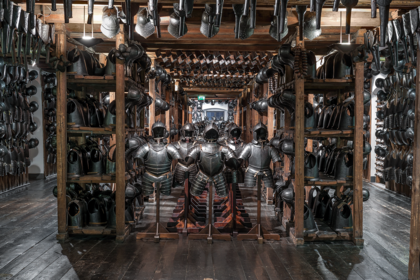
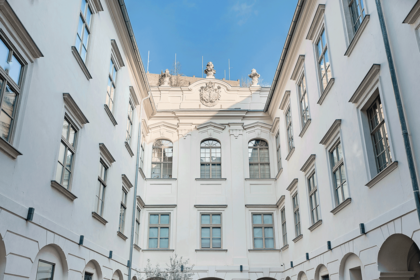
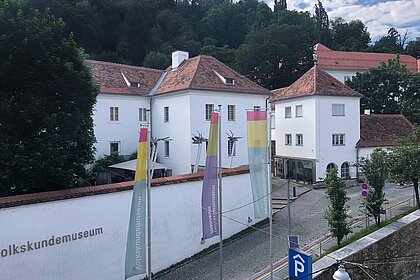
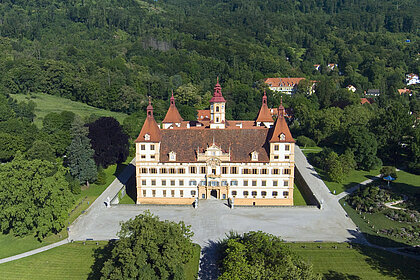
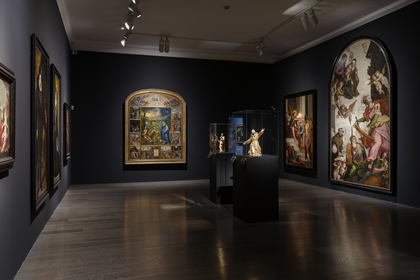
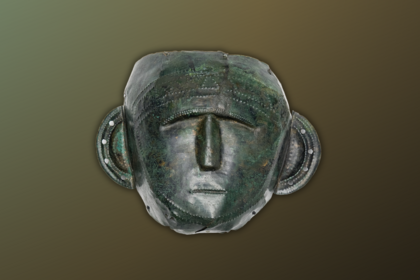
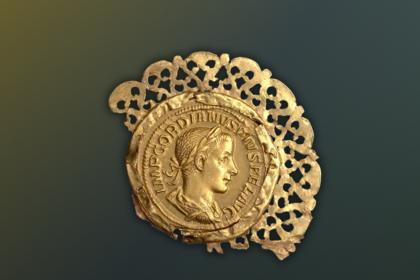
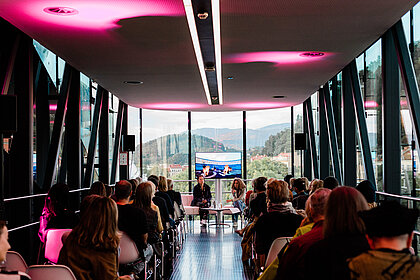
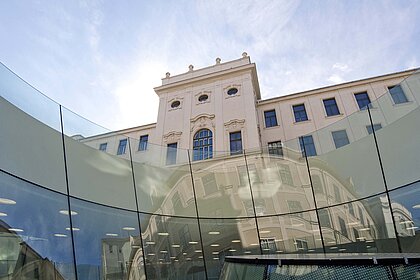
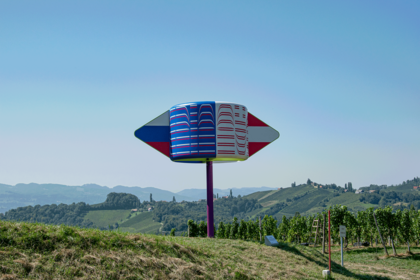
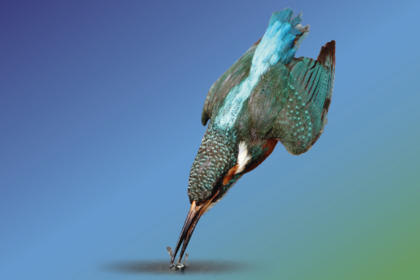

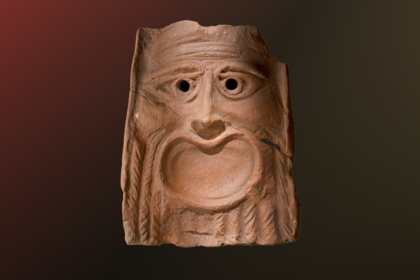
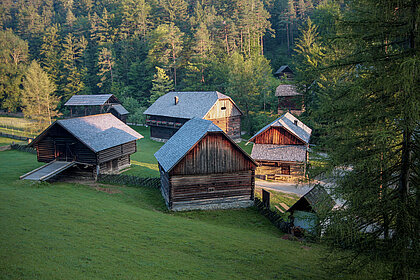
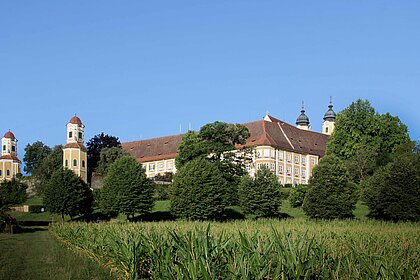
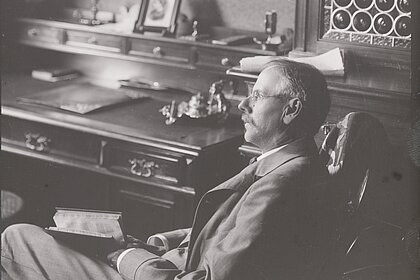
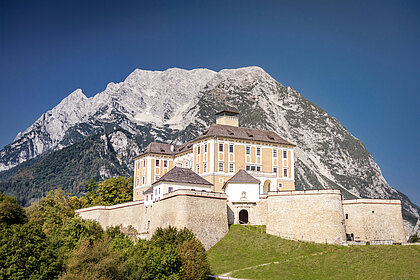
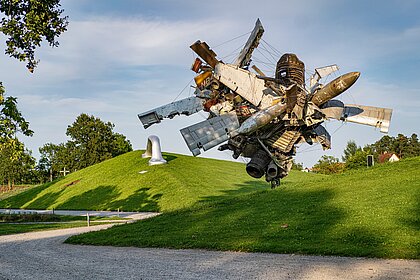

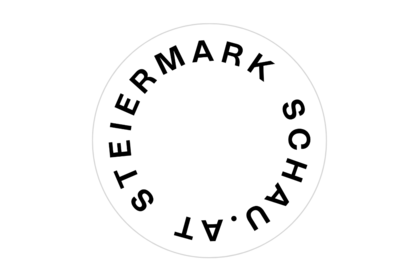
![[Translate to English:] Peter Roseggers 70. Geburtstag mit Familie [Translate to English:] Gruppenbild mit dem 70jährigen Peter Rosegger, umgeben von Familienmitgliedern](/fileadmin/_processed_/9/5/csm_PL080790_Kopie_206da42050.jpg)
![[Translate to English:] Große Stube - Detail [Translate to English:] Ecke mit Bauerntisch, Wiege und Kienspanhalter in der Großen Stube des Geburtshauses.](/fileadmin/_processed_/a/9/csm__E7A1634__Mittel__fece178f79.jpg)
![[Translate to English:] "Skizze von der Oper aus: Roseggers Wohnung, hinten Mausoleum, Schloßberg" [Translate to English:] Gebäude vor der Oper, im Hintergrund der Schloßberg](/fileadmin/_processed_/7/b/csm_burggasse-554x770_25f780b0f9.jpg)
![[Translate to English:] "Die Heimat. Ostseite" [Translate to English:] Der Kluppeneggerhof von Peter Rosegger gezeichnet](/fileadmin/_processed_/d/0/csm_Die-Heimat-Ostseite-Aquarell_a73a1dc2e7.jpg)
![[Translate to English:] Buch "Weltgift" von Peter Rosegger [Translate to English:] Cover des Buches "Weltgift" von Peter Rosegger](/fileadmin/_processed_/5/7/csm_weltgift-578x770_f64addc425.jpg)